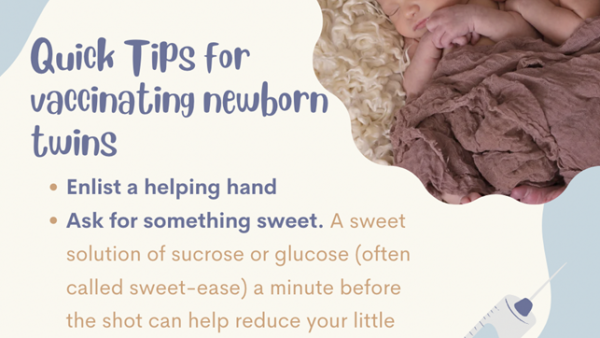Prenatal exposure to alcohol is a leading cause of preventable congenital disabilities in the United States. These lifelong physical, behavioral, and intellectual disabilities are known as fetal alcohol spectrum disorders (FASDs). In twin pregnancies, the adverse effects of alcohol are especially a concern because twins are already more likely to be born prematurely and have low birth weights.
FASDs are a group of conditions that can occur in a person exposed to alcohol before birth. The severity of symptoms varies from child to child, but can include:
- Vision or hearing problems
- Problems with the heart, kidneys, or bones
- Sleep and sucking problems as a baby
- Hyperactive behavior and difficulty with attention
- Learning disabilities (especially with math) and intellectual disability
- Speech and language delays
- Shorter-than-average height
- Abnormal facial features, such as a smooth ridge between the nose and upper lip
What do we know about twin pregnancies and exposure to alcohol?
A study of twins exposed to alcohol in utero shows that similar amounts of alcohol can lead to drastically different levels of neurological damage.1 While twins with identical DNA had similar fetal alcohol outcomes, non-identical twins could show strikingly different outcomes: one could be born with severe symptoms while the other was only mildly affected.
What does this mean? The risk of damage does not only depend on how much alcohol is consumed during pregnancy, the baby’s genetics also play an important role. The biggest takeaway, to protect all babies, including those most genetically vulnerable, the only safe amount of alcohol is none at all. There is also no safe time during pregnancy to drink alcohol, and all types of alcohol are equally harmful, including all wines and beer.
How are FASDs Treated?
FASDs last a lifetime, and while there is no cure for FASDs, early intervention treatment services can improve a child’s development. Treatment typically includes special education services, behavior therapy, counseling, and medication. In some cases, children with FAD may need to be placed in a special education classroom or receive other types of educational support.
Fetal alcohol disorder is a serious condition. If you’re pregnant or thinking about becoming pregnant, it’s important to avoid drinking any alcoholic beverages so that you can reduce your child’s risk for this disorder. If it is hard to stop drinking, talk with your doctor about getting help. You also can visit the Alcoholics Anonymous website at www.aa.org or call the Substance Abuse and Mental Health Services Administration’s treatment referral line at 800-662-HELP (4357).
References
- Genetic risks play part in fetal alcohol syndrome. Newsroom.uw.edu. https://newsroom.uw.edu/news/genetic-risks-play-part-fetal-alcohol-syndrome. Published 2022. Accessed September 9, 2022.
- Alcohol and Pregnancy. Acog.org. https://www.acog.org/womens-health/infographics/alcohol-and-pregnancy. Published 2022. Accessed September 9, 2022.






